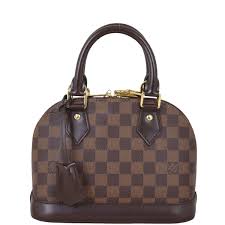As the demand for artisan furniture in aged care facilities continues to rise, selecting the right aged care chairs becomes paramount. These chairs play a vital role in ensuring comfort, safety, and well-being for elderly residents. In this article, we’ll explore the key considerations that facility managers should keep in mind when purchasing top-quality aged care chairs.
Comfort and Support:
Aged care chairs should prioritize comfort and support above all else. Look for chairs with ergonomic designs that provide adequate lumbar support and cushioning. Adjustable features such as reclining backs and footrests allow residents to find their optimal sitting position, reducing discomfort and promoting relaxation.
Durability and Quality Construction:
When investing in aged care chairs, durability is paramount. Opt for chairs constructed from high-quality materials such as hardwood frames and durable upholstery fabrics. Reinforced joints and sturdy mechanisms ensure longevity, withstanding the rigors of daily use in a healthcare environment.
Safety Features:
Safety is a top priority in aged care facilities. Choose artisan furniture with built-in safety features such as anti-slip feet and easy-to-operate locking mechanisms. Additionally, consider chairs with rounded edges and smooth surfaces to minimize the risk of injury from accidental bumps or falls.
Ease of Maintenance:
Aged care chairs should be easy to clean and maintain to uphold hygiene standards in healthcare settings. Look for chairs with removable, washable covers or upholstery that can be easily wiped down. Stain-resistant fabrics and antimicrobial treatments offer added protection against spills and germs.
Mobility and Accessibility:
Accessibility is essential for residents with mobility issues or disabilities. Select chairs with features such as armrests for support during sitting and standing, as well as swivel or glide mechanisms for ease of movement. Consider the layout of your facility to ensure that chairs can be maneuvered safely through doorways and corridors.
Customization Options:
Every aged care facility has unique requirements and preferences. Choose chairs that offer customization options such as a choice of upholstery colors and finishes to complement the facility’s decor. Additionally, consider chairs with modular designs that allow for easy configuration to accommodate varying seating needs.
Certifications and Compliance:
Ensure that the aged care chairs you select meet industry standards and regulatory requirements. Look for chairs that have been tested and certified for safety and performance by reputable organizations. Compliance with standards such as ISO 9001 and ISO 13485 assures quality and reliability.
Supplier Reputation and Support:
Partnering with a reputable supplier is essential when purchasing aged care chairs. Research suppliers with a track record of providing quality products and excellent customer service. Choose a supplier who offers comprehensive support services, including installation, training, and after-sales support.
Cost-effectiveness:
While quality should never be compromised, cost-effectiveness is still an important consideration. Evaluate the total cost of ownership, taking into account factors such as maintenance, repairs, and potential replacements. Consider investing in durable, high-quality chairs that offer long-term value and reduced lifecycle costs.
Feedback from Residents and Caregivers:
Ultimately, the comfort and satisfaction of residents should guide your decision-making process. Seek feedback from residents and caregivers regarding their preferences and experiences with existing chairs. Their input can provide valuable insights into the features and functionality that are most important for enhancing quality of life in aged care settings.


